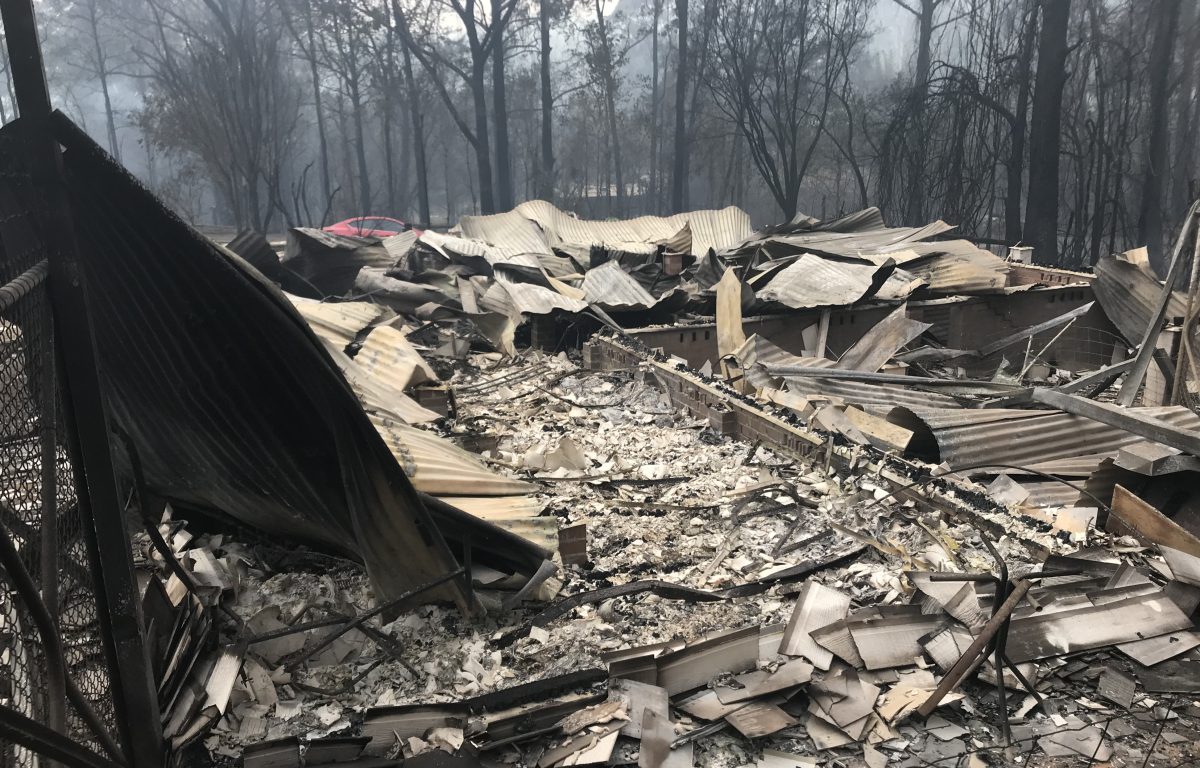
Hundreds of South Coast residents were left homeless after the Black Summer bushfires. Photo: Katrina Condie.
South Coast residents are all too familiar with the devastating impacts natural disasters can have on our communities and our way of life, and now they have an opportunity to provide feedback about how to best enhance Australia’s emergency response capabilities in the future.
Federal Member for Gilmore Fiona Phillips is inviting South Coast locals to help shape the future of the country’s national disaster response by having input into the Alternative Commonwealth Capabilities for Crisis Response discussion paper.
The Federal Government provides disaster assistance to state and territory governments during and after natural disasters, and Mrs Phillips said the consultation process would help to streamline this support.
“Locals have first-hand knowledge of how fires, floods and storms have impacted them, so it makes sense to ask them what they need next time,” she said.
“I really want to see some submissions from people in our region so we can ensure our region receives the best support we can from the Federal Government.”
The government is encouraging online submissions from the public and is particularly interested in the perspectives of private-sector organisations and key stakeholders operating in the emergency response and recovery space, as well as not-for-profit groups and community organisations.
The Department of Home Affairs and the National Emergency Management Agency (NEMA) will use the information gathered to guide the development of policies and recommendations to the Government regarding potential options for improved disaster response capabilities.
Mrs Phillips said a series of stakeholder roundtables would also be scheduled throughout the remainder of the year.
“We’ve been working since February to try and make our communities more resilient in the face of natural disaster,” she said.
“Ensuring the major stakeholders are all on the same page is a big part of that process.”
The Australian Defence Force (ADF) has played a crucial role in domestic disaster relief efforts, and will still be used in disaster recovery, when necessary, but this report will ensure Defence is not the primary recourse in disaster response, but rather called upon as a last resort.
“I have seen how effective the ADF can be in disaster situations, they’ve worked so hard and helped so many people,” Mrs Phillips said.
”But the reality is that disaster relief is not their main job – and it’s important that the ADF stays focused on the important work they are already doing.
“This discussion paper will look at ways other organisations can be supported to assist our communities in the event of natural disasters.”
Minister for Emergency Management Senator Murray Watt said Australia’s disaster management systems continued to be tested and stretched, as the frequency, intensity and concurrency of disaster events grew due to climate change.
“Eighty per cent of Australians have experienced some form of disaster since 2019. If you have been lucky enough not to be impacted by a recent disaster event, it is likely that someone close to you has,” he said.
“Over the coming decade, we expect that a wide range of threats and hazards will come together, exposing gaps in existing capacity and placing increased pressure on governments, institutions, economies and communities.
“While we have collectively made progress to enhance Australia’s disaster preparedness, response and resilience capability, we have to do much more to make sure we can handle the challenging future we expect to face.
“This is a whole-of-society issue that requires whole-of-society action.
“The acceleration of major climate events risks overwhelming our emergency services and national capacity to respond effectively.
“This discussion paper sets out some of the shared challenges and opportunities posed by this problem and I encourage all Australians to have a say and contribute to the discussion.”
The full discussion paper can be accessed here and submissions can be made here. Submissions are open until 11:59 pm on September 20.








